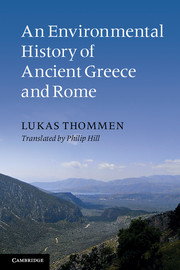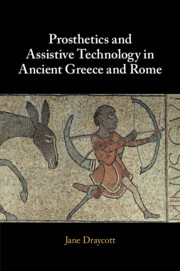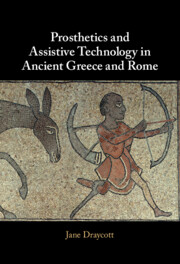An Environmental History of Ancient Greece and Rome
In ancient Greece and Rome an ambiguous relationship developed between man and nature, and this decisively determined the manner in which they treated the environment. On the one hand, nature was conceived as a space characterized and inhabited by divine powers, which deserved appropriate respect. On the other, a rationalist view emerged, according to which humans were to subdue nature using their technologies and to dispose of its resources. This book systematically describes the ways in which the Greeks and Romans intervened in the environment and thus traces the history of the tension between the exploitation of resources and the protection of nature, from early Greece to the period of late antiquity. At the same time it analyses the comprehensive opening up of the Mediterranean and the northern frontier regions, both for settlement and for economic activity. The book's level and approach make it highly accessible to students and non-specialists.
- Provides an overview of the relationship between man and nature in Graeco-Roman antiquity
- Explores the different ways in which the Greeks and Romans exploited the environment
- Lively and accessible account using both ancient sources and the latest modern research
Reviews & endorsements
'… justifies its place as introductory reading to such environmental issues as climate, agriculture, foresting and deforestation, food and water supply, population and built environment, mining and urban problems in the Greco-Roman world.' Arctos
Product details
March 2012Paperback
9780521174657
198 pages
228 × 154 × 10 mm
0.32kg
25 b/w illus. 2 maps
Available
Table of Contents
- Introduction
- Part I. Greece:
- 1. The geographic space
- 2. People and nature
- 3. Agriculture
- 4. Forests and timber
- 5. Gardens
- 6. Animals
- 7. Food
- 8. Fire and water
- 9. Earthquakes and volcanoes
- 10. Mining
- Part II. Rome:
- 11. The geographic space
- 12. People and nature
- 13. Agriculture
- 14. Forests and timber
- 15. Gardens
- 16. Animals
- 17. Food
- 18. Fire and water
- 19. Earthquakes and volcanoes
- 20. Mining
- 21. Urban problems and rural villa construction
- 22. The environment in Roman Britain
- Conclusion.




